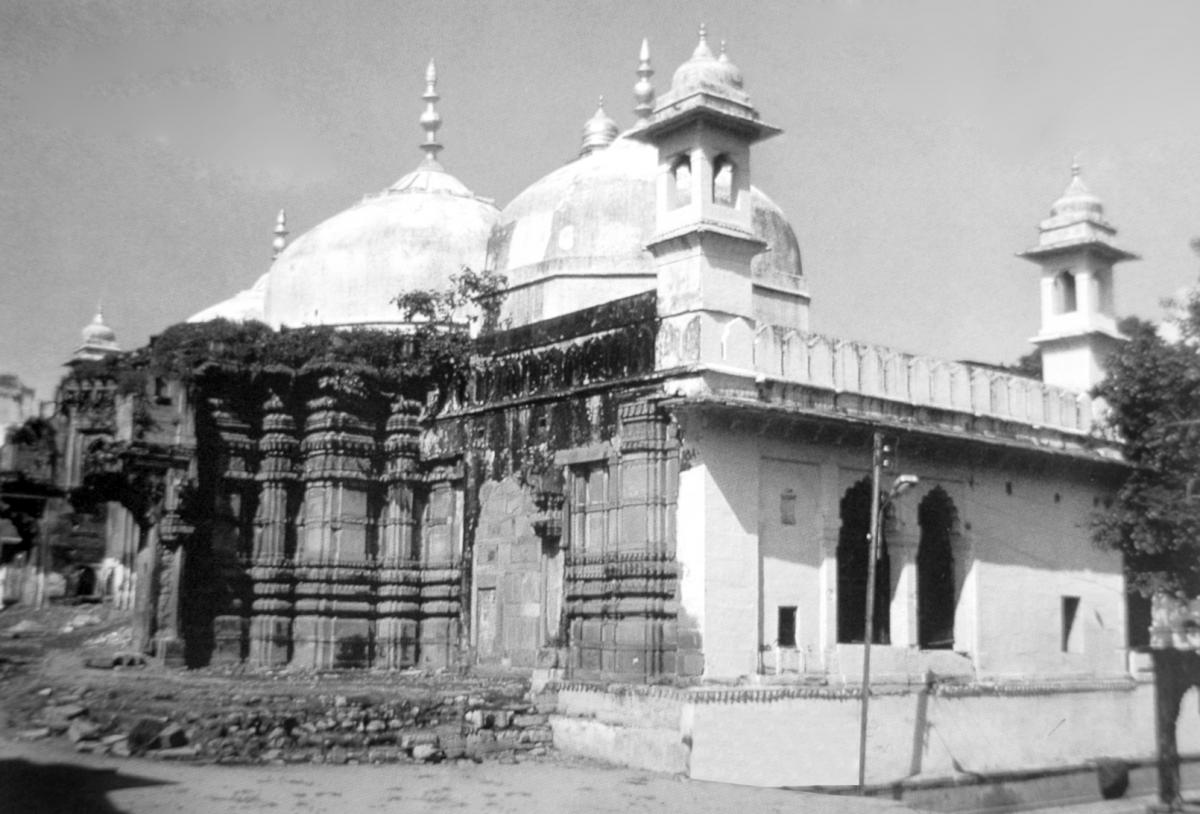
A Varanasi court has greenlighted a survey of the Gyanvapi Mosque – Kashi Vishwanath Temple complex. Archaeological Survey of India (ASI) will conduct the survey and the Uttar Pradesh government will bear costs of the same.
The order was passed in connection with a plea filed by local lawyer VS Rastogi, who demanded that the land upon which the mosque was constructed be returned to Hindus. Developments have picked up pace in the temple-mosque land dispute case in the recent months.
Brief background
For decades, the land dispute between the Kashi Vishwanath temple and the Gyanvapi mosque has been fodder for controversy and hate mongering by right wing supremacist groups, not very unlike the Ayodhya dispute.
It is alleged that Mughal emperor Aurangzeb had razed the temple in 1664 and the mosque was built on its ruins using the temple’s debris. Hostilities simmered over time and the dispute went to court when the title suit was filed in 1991. The two parties in this case were Kashi Vishwanath Mandir Trust (KVMT) and the Anjuman Intazamia Masjid (AIM). But back then, the Allahabad High Court had imposed a temporary stay on hearings in the case via an order dated October 13, 1998.
However, on February 4, 2020, a local court decided to commence hearings in the case stating that the HC’s order had not been extended within six months with a separate order, and that therefore the stay was deemed to have been vacated. In March 2020, the Allahabad High Court had stayed the Varanasi court’s order to commence hearing and ordered that the stay be maintained.
Petitions in the courts in 2021
It may be recalled that on February 18, a suit seeking “restoration of performance of rituals at the principal seat of an Ancient Temple at the Gyanvapi mosque area” was filed before a district court. The suit stated that every citizen has a fundamental right to perform pooja, worship and rituals according to the tenets of his religion within the ambit of Article 25 and any obstacle created before January 26, 1950 has become null and void by virtue of Article 13(1). Therefore, the plea states, “An idol worshipper cannot complete his pooja and gain spiritual advantages without having objects of worship. Any hindrance/ obstacle created in performance of pooja, is denial of right to religion guaranteed under Article 25 of the Constitution of India”. This suit has been filed by ten individuals acting as next friends of deities claimed to be existing in the mosque precincts including Maa Shringar Gauri, Lord Ganesh and Lord Shiva.
It is also noteworthy that on March 11, the court of Civil Judge (Senior Division) Kumud Lata Tripathi had issued notice to Central government, UP government, Varanasi District Magistrate, Senior Superintendent of Police, Varanasi, UP Muslim Personal Law Board, mosque management- Anjuman Intazamia and Board of trustees of Kashi Vishwanath Temple. The court had also fixed April 2 as the date for filing written statements and April 9 for framing of issues.
Meanwhile, on March 13, BJP leader Ashwini Upadhyay filed a petition before the Supreme Court challenging the constitutional validity of the Places of Worship (Special Provisions) Act 1991 as it bars remedies against illegal encroachment on the places of worship and pilgrimages prior to August 15, 1947. The petition asserts that the law has created an arbitrary, irrational retrospective cut-off date and in the process has legalised the illegal acts of invaders who encroached upon religious institutions back in the day. The plea submits that the provisions of the law, particularly, section 2,3 and 4 take away rights of Hindus, Jains, Buddhists, and Sikhs to reclaim their places of worship through Courts. A bench of CJI SA Bode and Justice AS Bopanna issued notice to the Ministry of Home Affairs, Ministry of Law and the Ministry of Culture.
Then on March 18, the court of Civil Judge (Senior Division) Mahendra Kumar Singh has admitted a new petition related to the case. The new plea demands that an area of the Adi Vishweshwar temple, that is currently deemed ‘occupied’ by the petitioner, be freed, and that the portion of the temple that was demolished on the instructions of Mughal emperor Aurangzeb, be rebuilt. The court has now issued notice to the Union of India, Uttar Pradesh Government, the district administration, Varanasi SSP, UP Sunni Central Waqf Board, Anjuman Intezamia Masjid Committee and Kashi Vishwanath Mandir Trust making them respondents in the case.
Related:
Gyan Vapi case: New petition admitted, notice issued
Gyanvapi well becomes part of Kashi-Vishwanath temple
Gyanvyapi mosque case: Suit filed in Varanasi court for restoration of temple